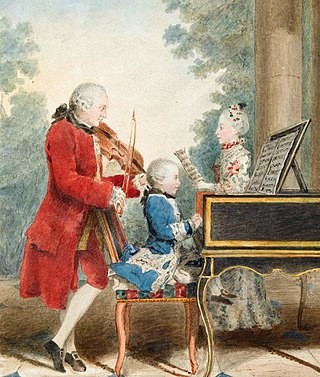
The Classical Period was an era of classical music between roughly 1750 and 1820.
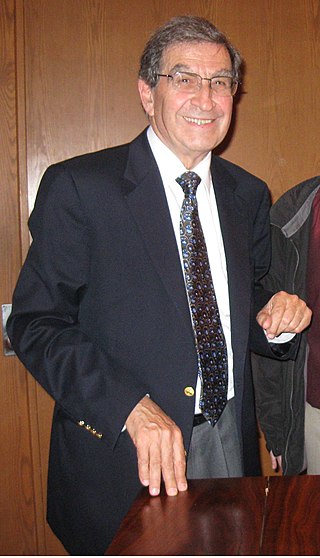
Malcolm Bilson is an American pianist and musicologist specializing in 18th- and 19th-century music. He is the Frederick J. Whiton Professor of Music in Cornell University, Ithaca, New York Bilson is one of the foremost players and teachers of the fortepiano; this is the ancestor of the modern piano and was the instrument used in Haydn, Mozart, and Beethoven's time.
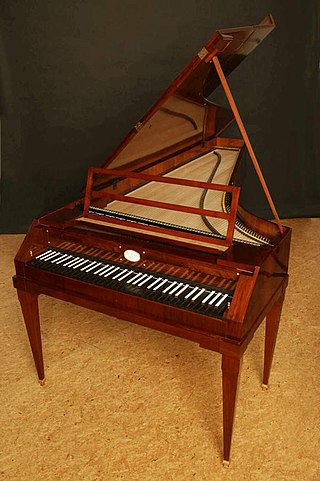
A fortepiano is an early piano. In principle, the word "fortepiano" can designate any piano dating from the invention of the instrument by Bartolomeo Cristofori in 1700 up to the early 19th century. Most typically, however, it is used to refer to the mid-18th to early-19th century instruments, for which composers of the Classical era, such as Haydn, Mozart, and the younger Beethoven, wrote their piano music.

Robert David Levin is an American classical pianist, musicologist, and composer. He was a professor of music at Harvard University from 1994 to 2014 and the artistic director of the Sarasota Music Festival from 2007 to 2017.
Joel Krosnick is an American cellist who has performed as a soloist, recitalist, and chamber musician throughout the world for over 40 years. As a member of the Juilliard String Quartet from 1974 to 2016, he performed the great quartet literature throughout North America, Europe, Asia, and Australia.
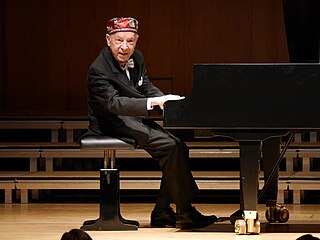
Paul Badura-Skoda was an Austrian pianist.

Freiburger Barockorchester is a German Baroque orchestra founded in 1987, with the mission statement: "to enliven the world of Baroque music with new sounds".
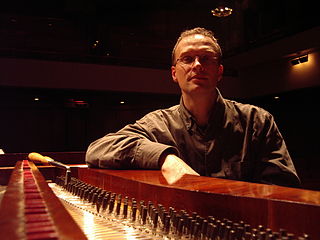
Bart van Oort is a Dutch classical pianist.
Alan Feinberg is an American classical pianist. He has premiered over 300 works by such composers as John Adams, Milton Babbitt, John Harbison, Charles Ives, Steve Reich, and Charles Wuorinen, as well as the premiere of Mel Powell's Pulitzer Prize winning Duplicates. He is an experienced performer of both classical and contemporary music and is well known for recitals that pair old and new music.

Jos Van Immerseel is a Belgian harpsichordist, pianist and conductor.

Mozart's Piano Quartet No. 2 in E-flat major, K. 493, was written after Franz Anton Hoffmeister released Mozart from the obligation of writing three piano quartets.
Stephanie Ann Chase is an American classical violinist.

Gabriel Anton Walter was a builder of pianos. The Grove Dictionary of Music and Musicians describes him as "the most famous Viennese piano maker of his time". His pianos were played by many composers including Haydn, Mozart and a very young Beethoven.
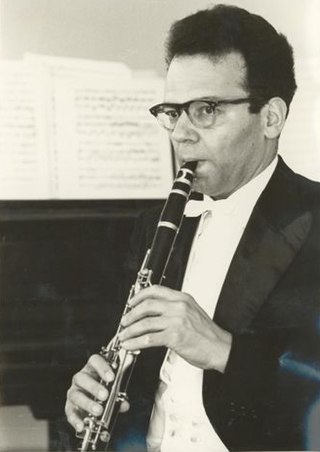
Yona Ettlinger was a clarinetist who played and taught in Israel, France and England. Ettlinger is considered a prominent classical clarinetist of his generation, and one of Israel's notable instrumentalists. His musicianship and unique sound influenced the art of clarinet playing in Israel and Europe in the second half of the 20th century. Many clarinet soloists and orchestra players of different countries were among his students.
Leonard Hokanson was an American pianist who achieved prominence in Europe as a soloist and chamber musician.

Paul McNulty is a builder of historical pianos, described by the New Grove as "famous for the high standard of [his] instruments." Within the community of builders, McNulty is noted for his efforts to extend the production of historically informed instruments later into history: while he has built many fortepianos in 18th-century style, he has also progressively sought to span the gap between the fortepiano and the fully modern piano that emerged around the last third of the 19th century. The expanding diversity of McNulty's productions has thus helped "provide an opportunity to extend keyboard performing practice to include the piano repertory of the 19th century".

Anthony Newman is an American classical musician. While mostly known as an organist, Newman is also a harpsichordist, pianist, composer, conductor, writer, and teacher. He is a specialist in music of the Baroque period, particularly the works of Johann Sebastian Bach, and has collaborated with such noted musicians as Kathleen Battle, Julius Baker, Itzhak Perlman, Eugenia Zukerman, Jean-Pierre Rampal, Leonard Bernstein, Michala Petri, and Wynton Marsalis, for whom he arranged and conducted In Gabriel’s Garden, the most popular classical record of 1996.
Philip Ralph Belt was a pioneering builder of pianos in historical style, in particular the 18th century instruments commonly called fortepianos. His pianos were modeled on instruments made by historical builders, particularly Johann Andreas Stein and Anton Walter. Belt's pianos played a role in the revival of performance on historical instruments that was an important trend in classical music in the second half of the 20th century and continues to this day.
Johann Peter Fritz was a piano maker based in Vienna. He was one of Vienna's most distinguished piano makers. His pianos were valued for good quality and melodiousness. It is known, that Giuseppe Verdi was very fond of Johann Fritz's pianos and used the Viennese 6-pedal Fritz piano from the time of Rigoletto in 1851 to Aida in 1871. This exact piano can be seen in the composer's Villa Verdi in Province of Piacenza in Italy.
Kristian Bezuidenhout is an Australian pianist, who specializes in performances on early keyboard instruments.












